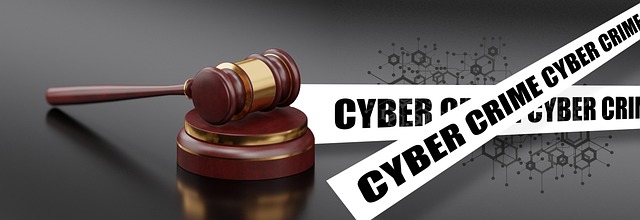Antitrust laws are crucial for maintaining fair markets and preventing tech giants from abusing their market power. To avoid legal consequences, tech companies must proactively analyze mergers, pricing, data sharing, and partnerships for anti-competitive behaviors using internal audits and risk assessments. By integrating robust compliance programs and ethical cultures, tech firms can mitigate risks, navigate complex regulations, and foster innovation while adhering to antitrust laws. Proactive strategies, based on case studies from prominent tech giants, emphasize the importance of transparency, fair competition, and continuous legal environment adaptation for long-term success in the digital landscape.
In the dynamic landscape of technology, regulatory compliance is not merely an afterthought but a strategic imperative. This article guides tech companies through the complex web of antitrust laws, highlighting their profound impact on industry dynamics. We explore prevalent compliance issues unique to the tech sector and delve into effective internal audit strategies for risk mitigation. Additionally, we navigate recent antitrust litigation case studies, offering insights for strategic decision-making. Finally, we emphasize the importance of continuous compliance and innovative practices for long-term success in an ever-evolving regulatory environment.
- Understanding Antitrust Laws and Their Impact on Tech Companies
- Common Regulatory Compliance Issues in the Technology Sector
- Strategies for Effective Internal Audits and Risk Assessment
- Navigating Antitrust Litigation: Case Studies and Key Learnings
- Future-Proofing Your Business: Continuous Compliance and Innovation
Understanding Antitrust Laws and Their Impact on Tech Companies
Antitrust laws play a pivotal role in regulating competitive markets and ensuring fair practices, especially within the tech industry. These regulations are designed to prevent companies from gaining excessive market power and fostering healthy competition. Tech giants often find themselves at the center of antitrust scrutiny due to their significant market influence and innovative yet potentially disruptive business models. Understanding these laws is crucial for navigating regulatory compliance issues.
Many tech companies have faced antitrust litigation strategies, leading to substantial settlements and changes in their operations. To avoid indictment and ensure extraordinary results, businesses must proactively analyze their respective practices. This includes examining mergers and acquisitions, pricing strategies, data sharing, and partnerships to identify potential anti-competitive behaviors. By staying compliant and adapting their approaches, tech companies can foster innovation while respecting the boundaries set by antitrust laws.
Common Regulatory Compliance Issues in the Technology Sector
The technology sector, known for its rapid innovation and global reach, often faces unique challenges when it comes to regulatory compliance. As tech companies expand into new markets and develop cutting-edge products, they must navigate a complex web of laws and regulations designed to protect consumers, foster fair competition, and ensure data privacy. Common issues include antitrust violations, where tech giants may inadvertently step on each other’s toes or engage in practices that restrict market competition. These scenarios can lead to costly investigations and settlements, as seen in recent cases involving prominent tech corporations.
Antitrust litigation strategies for tech companies are increasingly sophisticated, focusing on maintaining a delicate balance between innovation and fair play. Given the dynamic nature of the industry, these businesses must stay agile and proactive in addressing regulatory concerns. An unprecedented track record of success in managing compliance issues can be attributed to their ability to adapt quickly, ensuring they remain competitive while adhering to legal mandates throughout all stages of the investigative and enforcement process.
Strategies for Effective Internal Audits and Risk Assessment
Internal audits and risk assessment are critical tools for tech companies navigating complex regulatory landscapes, especially in the realm of antitrust litigation. These strategies involve a systematic approach to evaluating a company’s adherence to legal and ethical standards. By integrating robust audit processes, tech firms can proactively identify potential risks associated with their operations and products. Effective internal audits ensure that every aspect of the business is scrutinized, from data handling practices to competitive behavior, thereby mitigating the chances of costly antitrust violations.
When conducting risk assessments, companies should consider industry-specific challenges, such as market dominance or data privacy concerns. Antitrust litigation strategies for tech firms require a unique balance between fostering innovation and maintaining fair competition. Regular internal audits, coupled with comprehensive training programs, empower employees to recognize and report any unethical practices. This proactive measure not only achieves extraordinary results in regulatory compliance but also fosters a culture of integrity within the respective business operations.
Navigating Antitrust Litigation: Case Studies and Key Learnings
Navigating Antitrust litigation presents unique challenges for tech companies, who often find themselves in the crosshairs due to their market dominance and complex business models. Case studies from prominent tech giants offer valuable insights into effective strategies for defense and mitigation. One key learning is the importance of maintaining detailed records and documentation, ensuring transparency throughout all stages of the investigative and enforcement process. This proactive approach can help companies demonstrate compliance with antitrust laws and avoid indictment.
Furthermore, these cases underscore the significance of ethical business practices and competitive markets. Tech companies must foster a culture that discourages collusion and anti-competitive behaviors, such as price-fixing or market division. By prioritizing fairness and innovation for his clients, tech firms can not only mitigate legal risks but also enhance their public image and long-term sustainability in an increasingly regulated digital landscape.
Future-Proofing Your Business: Continuous Compliance and Innovation
In today’s dynamic business landscape, future-proofing your company involves more than just adapting to market shifts; it necessitates a proactive approach to regulatory compliance and innovation. Achieving extraordinary results in an ever-evolving legal environment requires tech companies to move beyond mere adherence to laws and regulations. Instead, they must embrace continuous compliance as a strategic imperative. This means staying ahead of anticipated changes in legislation, particularly in high-risk areas like antitrust litigation strategies, where white-collar and economic crimes can have devastating consequences across the country.
By integrating robust compliance programs into their operational DNA, tech companies can mitigate risks, avoid costly legal battles, and foster an environment conducive to innovation. This proactive stance not only safeguards against potential antitrust litigation but also positions businesses for long-term success in a rapidly changing digital world. Embracing innovative solutions while maintaining stringent compliance standards is the key to navigating complex regulatory environments and ensuring sustained growth.
In navigating the complex landscape of regulatory compliance, especially within the tech sector, understanding antitrust laws and implementing robust internal audit strategies are pivotal. By learning from case studies and adopting continuous compliance practices, tech companies can ensure they stay ahead of the curve. Effective risk assessment and proactive measures, such as innovative solutions to address common issues, will not only mitigate legal risks but also foster a culture of ethical business practices. Ultimately, balancing regulatory adherence with innovation is key to long-term success in the dynamic tech industry, including successful strategies for antitrust litigation.






